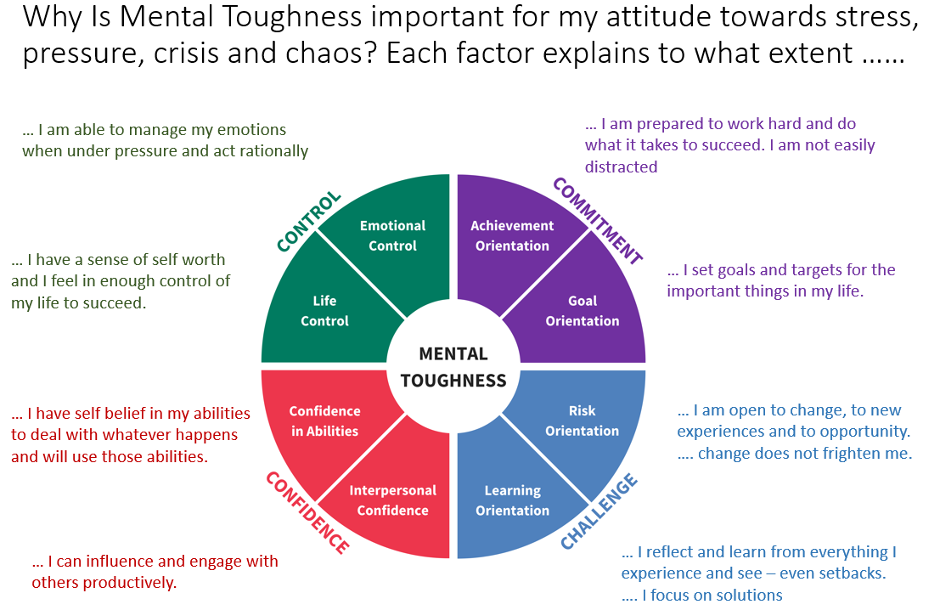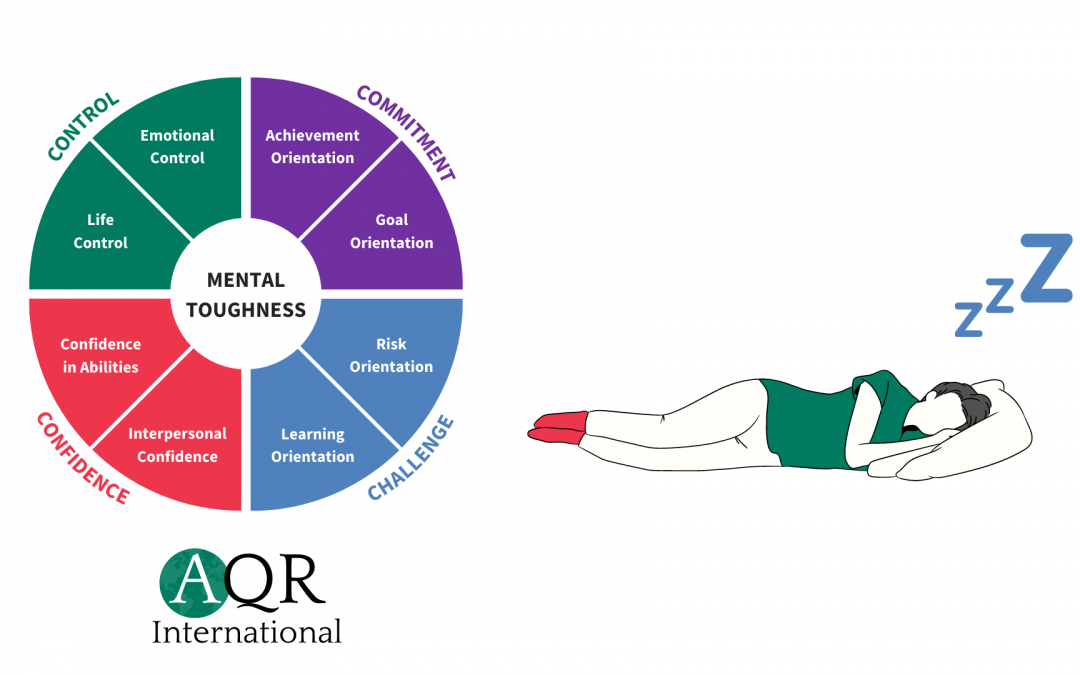How self-awareness about our Mental Toughness can help our sleep.
Sometimes old adages are correct – well at least partially. The often-quoted ‘early to bed and early to rise makes a person healthy, wealthy and wise has at its core some truth; well at least the healthy part. Sleep is closely linked to both physical and mental health. It is both linked to causes and consequence of health issues.
Although it has been studied for over a century, sleep is not well understood. It must have a huge evolutionary advantage, as to make yourself vulnerable for many hours is rather a drastic solution.
Despite the research, sleep’s function is unclear. It might be related to hiding at night or reducing energy expenditure. Probably the most convincing explanation is that it allows a system clean and repair – but this under active debate.
If you are sleep deprived the brain is unable to function efficiently, but sleep is highly restorative, even naps. Recent research has linked sleep to Dementia, both as a causal factor and as an early indicator of potential issues.
Peoples’ sleep needs vary considerably. Some function well on very little; others need a lot (just ask the parents of teenagers!). Problems tend to occur when a person’s normal pattern is disrupted. We live in complex times and many people are finding it difficult to sleep well at the moment. Who hasn’t recently lay wide awake thinking ‘what has just happened?’
So, what can Mental Toughness add to the sleep question? We feel it has significant potential to contribute to the debate.
We can agree that poor sleep patterns can cause significant harm. An interesting study from colleagues in Switzerland (Brand et al,) examined the sleep patterns of adolescents. There is clear evidence to show that favourable sleep patterns are related to favourable psychological functioning such as curiosity, lack of depressive symptoms, and to increased physical activity.
Sleep issues were found to be related to low scores on Control, low scores on Confidence in one’s Abilities, and low Challenge Scores. It is reasonable to suggest that for adolescents, favourable sleep and favourable mental toughness seem to be related.

It seems plausible that improving both sleep and mental toughness should relate to increased wellbeing. So, there are two elements at play here.
Firstly, there are an array of techniques that directly impact sleep quality. For example, the importance of avoiding screens at night, watching one’s diet prior to sleep and the use of bedtime routines have all been found to be useful. These, and other techniques, are quite effective for most people, most of the time.
Another approach is to try and improve sleep via the underlying mechanisms – one of which may be Mental Toughness. Mental Toughness acts both to reduce demands on the cognitive and emotional systems and provides a strengthening of the defences. I tend to think of it like a water management system. You need to build a robust Dam AND reduce the stresses on the structure at the same time.
As an example of research that has implications for both building defences and reducing the pressures, we can look at directed forgetting. Professor Dewhurst and colleagues at Hull University have shown that more mentally tough individuals can compartmentalise their thoughts to some extent – giving them the potential to ‘car park’ the more troublesome ones.
This ability is key to a good night’s sleep – we all have those nights where we can’t quieten our minds. It’s not binary – rather it is more that mentally tough people are more able to deal with these nighttime terrors more convincingly – but they are not immune to them.
One of my favourite pieces of research in the area is a longitudinal study looking at sleep. I had the privilege of working with the Swiss research group on a study to explore, to what extent the psychological profiles of pre-schoolers aged five were associated with both Mental Toughness scores and sleep disturbances at age 14.
Higher prosocial behaviour, lower negative peer relationships, and lower internalizing and externalizing problems at age five, as rated by parents and teachers, were associated with self-reported higher Mental Toughness and lower sleep disturbances at age 14.
The pattern of results suggests that MT traits during adolescence may have their origins in the pre-school years. This has clear implications for health AND education. Poor sleep patterns can be established early in life can be related to Mental Toughness. Developing toughness in young children may help prevent significant challenges further down the line.
So what can we say?
Firstly, sleep is important and more sensitive individuals may be more prone to sleep challenges. This group will undoubtedly benefit from planning their nighttime routines and making use of the techniques available.
Secondly, we must consider sleep in context. It is not sensible to tackle sleep without considering things such as diet and exercise and the individuals’ psychological make-up. These too relate to mental toughness.
This brings us to point three. Mental toughness is intimately related to sleep. Sleep appears to impact toughness and vice versa. So, improving sleep should enhance toughness scores. Equally important, perhaps more so, developing mental toughness can have both direct and indirect positive impacts on sleep, as well as other health behaviours. This causal pathway can be specifically targeted, linking the 8 factors to a sleep regimen, or can be a welcome secondary outcome to more general development activities
Sleep Well!
Professor Peter Clough
The MTQPlus is a very well evidence psychometric measure which helps users to understand their mental toughness – to make the invisible, visible. If we know from where we are starting a development journey, it can be very effective.
If your interest is piqued to learn more about your own Mental Toughness profile and how to assess and develop Mental Toughness in others, please visit www.aqrinternational.co.uk. and if interested in being a licensed user, contact us through the site. Feel free to connect with me too on LinkedIn or via doug@aqr.co.uk


